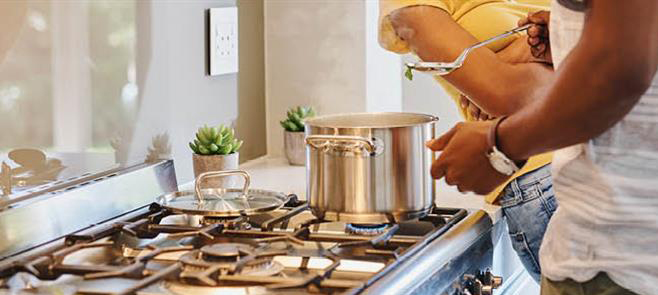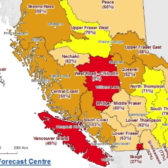How to prevent carbon monoxide exposure
Preventative maintenance of your natural gas appliances can help keep you and your loved ones safe this heating season.
To avoid unexpected issues, like a carbon monoxide (CO) leak, it’s important to make servicing your natural gas appliances annually a top priority.
The symptoms of CO poisoning can be easy to misdiagnose. Actress, Anna Faris and her family thought they were experiencing altitude sickness at a rented home in Lake Tahoe.
When receiving medical treatment, they found out their symptoms were actually due to CO exposure. Closer to home, several people were exposed to CO in Pitt Meadows due to a problem with the heating, ventilation and air conditioning (HVAC) system in their building.
In both cases, these incidents could have been prevented.
Carbon monoxide: an invisible, odourless gas
CO is produced when fuels like gasoline, propane, wood or natural gas are burned incompletely.
Unlike natural gas, which smells like rotten eggs, carbon monoxide has no odor or visible fumes which makes it much harder to detect.
If exposed to CO you could experience symptoms that can be confused with the flu or COVID-19. This includes chronic headaches, nausea, drowsiness, impaired judgment and loss of coordination. It’s important to seek medical attention immediately if you suspect a CO leak in your home.
Regular maintenance will help keep your appliances running as efficiently as possible which prevents exposure to CO and can also save you money.
Reduce your risk of exposure
1. Have your appliances serviced once a year by a licensed natural gas contractor.
- Having a Technical Safety BC contractor inspect your appliances to make sure they’re operating safely and have enough ventilation is the best way to prevent CO exposure.
- Don’t have a contractor in mind? It’s easy to find a licenced natural gas contractor on our directory.
2. Install CO detectors in your home.
- This will alert you if there are elevated levels of CO and give you time to get outside into fresh air. It’s important to install CO detectors on each level of your home, especially near bedrooms so you can hear the alarm if it goes off in the middle of the night.
3. Never use equipment designed for outdoor use, such as barbecues, camp stoves, propane lanterns or generators in any enclosed space.
- Remove vehicles and gas-powered equipment from the garage immediately after starting the engine.
4. Follow the instructions and recommendations in your appliance manuals.
If you suspect a leak
Get outside right away if you think there’s a CO leak. Open doors and windows on your way outside, and get other people and pets out of the building.
Once outside, dial 9-1-1 for medical assistance for anyone experiencing symptoms of CO poisoning. You can also call FortisBC’s Emergency Line at 1-800-663-9911.
FortisBC takes CO calls seriously and will investigate all potential CO leaks. If there is a leak, a FortisBC technician will clear and vent the area and when it’s safe, they’ll allow you back inside.
Learn more about carbon monoxide safety and appliance maintenance and safety.
This contributed media release is from FortisBC, a Canadian-owned BC-based company that delivers natural gas and electricity to approximately 1.2 million customers in 135 communities throughout BC.

























